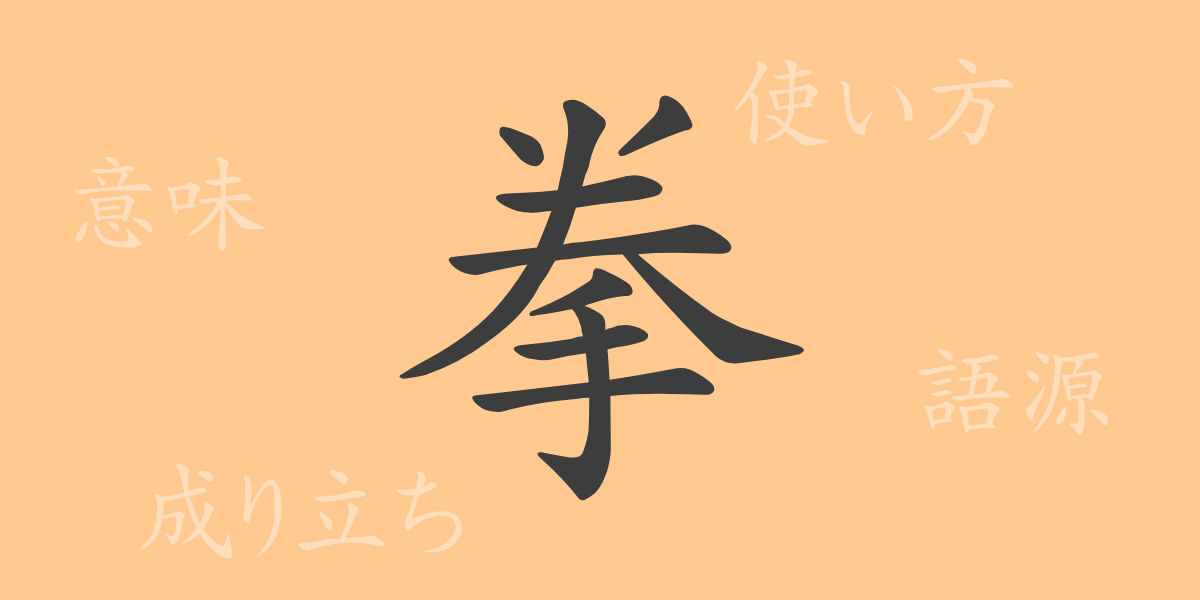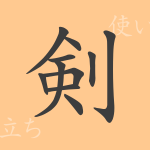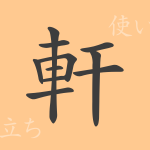In the rich tapestry of Japanese expressions, numerous kanji characters are employed. One such character is “拳” (こぶし, kobushi). Used in everyday conversation, the world of martial arts, and even in idioms and proverbs, “拳” permeates various aspects of our lives. This article delves into its origins, meanings, usages, and related phrases, uncovering the charm and applications of this kanji.
Origin of 拳
The character “拳” (こぶし, kobushi) finds its roots in ancient Chinese oracle bone script. It is composed of “手” (て, te) meaning “hand” and “力” (ちから, chikara) symbolizing strength, originally representing a “clenched hand” or a “powerful hand.” Over time, it came to refer to a “fist” in the context of battle and martial arts, evolving to carry metaphorical meanings as well.
Meaning and Usage of 拳
In modern Japanese, “拳” (こぶし, kobushi) primarily means “fist,” referring to a hand in a clenched state. Beyond its literal sense, it symbolizes strength and courage. It is also used to describe techniques and styles in martial arts, such as kenpo and boxing.
Readings, Stroke Count, and Radical of 拳
Here is the basic information about the kanji “拳” (こぶし, kobushi).
- Readings: On’yomi – ケン (けん, ken); Kun’yomi – こぶし (こぶし, kobushi)
- Stroke count: 10 strokes
- Radical: The radical is 手部 (てへん, tehen), related to hands.
Idioms, Proverbs, and Phrases Using 拳
Several idioms, proverbs, and phrases incorporate “拳” (こぶし, kobushi). Here are a few examples:
- 拳法 (けんぽう, kenpou): Refers to the techniques and systems of martial arts that use fists.
- 一拳入魂 (いっけんにゅうこん, ikken nyuukon): Putting one’s whole soul into a single punch, symbolizing giving one’s all in any endeavor.
- 拳を交える (こぶしをまじえる, kobushi o maji eru): Literally “to exchange fists,” meaning to fight directly with hands or to have a heated debate.
Conclusion About 拳
The kanji “拳” (こぶし, kobushi) is more than just a character; it embodies strength, courage, and a deep spiritual meaning. As a term for martial arts techniques and as seen in everyday idioms and proverbs, this kanji reflects an aspect of Japanese culture. As a commonly used kanji, “拳” continues to empower our language. We should continue to appreciate and pay attention to its significance in our expressions.

























